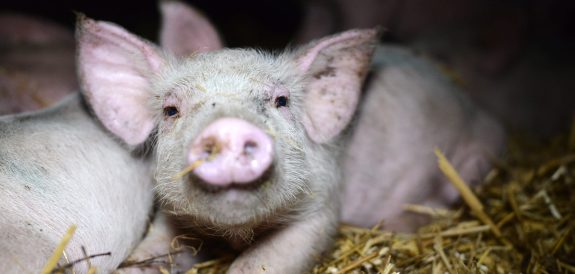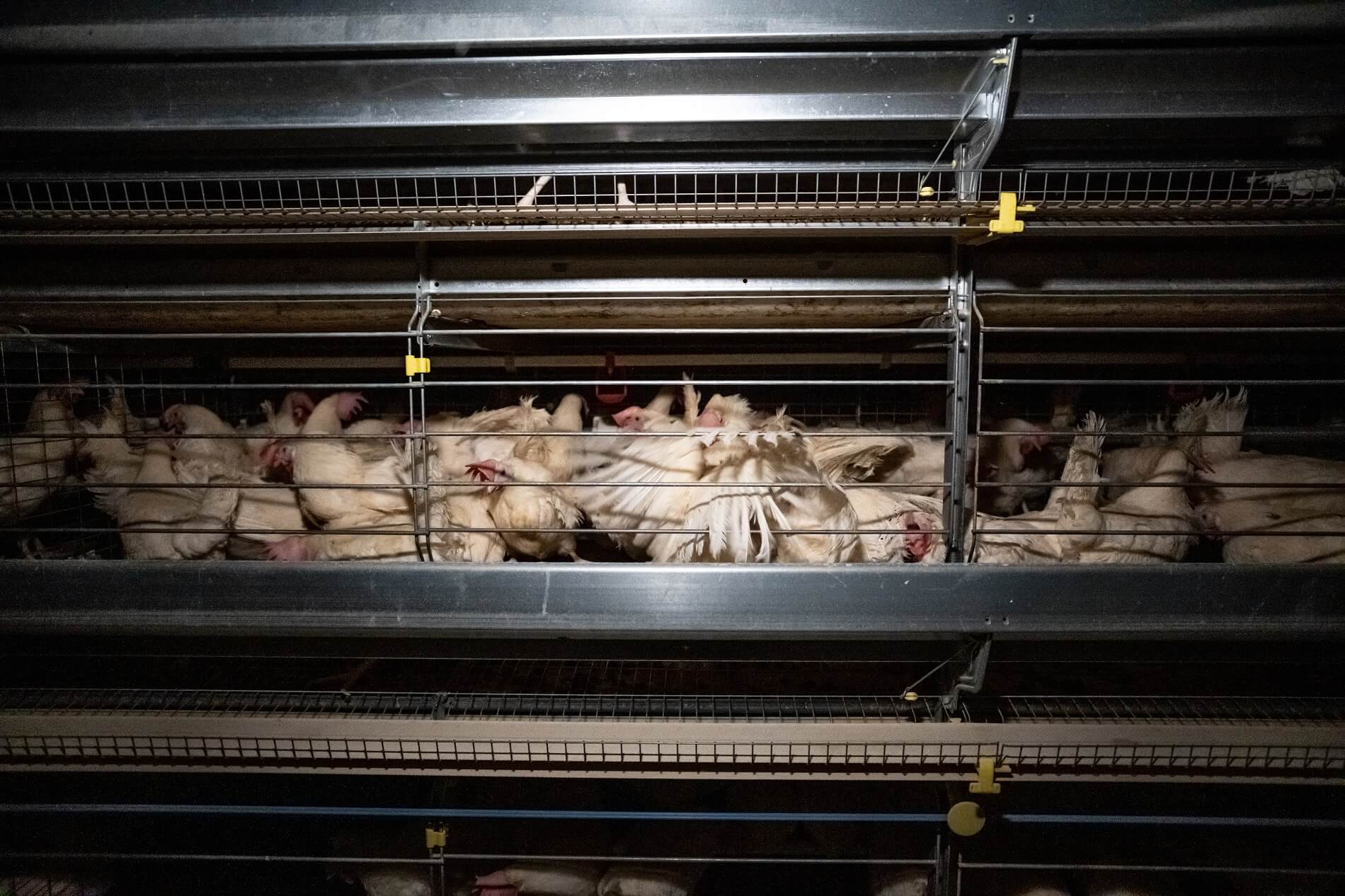Canadians are becoming increasingly concerned about the treatment of animals raised and slaughtered for food. More and more people are avoiding or reducing consumption of meat and other animal products, while those who choose to consume eggs, dairy, and meat are increasingly concerned about how animals were treated and the safety of the food they’re feeding their families.
With no federal or provincial laws setting standards for animal welfare on farms, virtually no government oversight of these facilities, and some of the worst animal transport laws in the developed world, Canadians are largely kept in the dark as to how animals are treated at industrial agricultural facilities.
Whistleblowers show what happens behind closed doors
Within this opaque, unregulated system, one of the most important ways abuse and mistreatment of farmed animals comes to light is through employee whistleblowers. For instance, employee whistleblower footage in 2014 showed turkeys being kicked and beaten with shovels, among other disturbing acts, at the Hybrid Turkeys facility in Kitchener. Whistleblower footage in 2018 showed unsanitary conditions and lack of veterinary care at a mink farm near Guelph. In both cases, authorities investigated and laid animal cruelty charges. In the case of Hybrid Turkeys, the company pled guilty. In the mink farm case, the charges are still before the courts.
In the century since Upton Sinclair’s novel The Jungle exposed labour and health violations in Chicago’s meatpacking industry, employee whistleblowers in Canada and the U.S. have documented abuse of piglets, cows, calves, and chickens; live baby chicks ground in macerators; and violations of environmental and labour laws. These exposés have led to animal cruelty charges and convictions, and have also been an important driver of public opinions and debates around animal use practices and food safety.
In order for farm and slaughterhouse exposés to uncover unlawful and unethical activity, the employee involved must not reveal their full intentions to their employer. For instance, they may choose not to disclose their affiliation with an animal protection group when applying for a job.
Ag gag laws do not pass constitutional muster
Several U.S. states have made it an offence to enter agricultural property under “false pretenses” or to covertly record photos, video, or audio. Commonly known as agricultural gag, or “ag gag laws”, these statutes seek to gag would-be whistleblowers, undercover journalists, and animal advocates to prevent them from publicly exposing animal cruelty.
In January 2020, the U.S. District Court in Kansas found that state’s ag gag law an unconstitutional infringement of free speech rights, because the law made it a crime to use deception to enter a farm or slaughterhouse to take photographs or recordings. This follows similar court decisions in Idaho, Wyoming, Utah, and Iowa that have found ag gag laws to be unconstitutional violations of the right to free speech. These courts have recognized the public interest in individuals and organizations exercising their free speech rights to provide information to the public about important animal welfare and food safety issues.
Canadian ag gag laws violate the Charter
After rushing the bill through the legislative process in just 10 days, Alberta passed Bill 27, Trespass Statutes (Protecting Law-Abiding Property Owners) Act – Canada’s first ag gag law – on November 28, 2019. The next week, Ontario introduced Bill 156, Security from Trespass and Protecting Food Safety Act, 2019. Both Bills increase fines for trespassing on farms and were announced in response to calls from farmers for greater protection against would-be trespassers.
However, the Bills go much further than this, and would prohibit employee whistleblowers from exposing cruelty on farms by making it an offence to gain access to agricultural property under “false pretenses.” This language mirrors similar language from U.S. ag gag laws that have been found to be unconstitutional.
Ontario’s Bill 156 also gives farmers sweeping powers to arrest individuals on their property, and use force during arrests. It restricts the public’s right to peacefully gather on public property and document illegal cruelty in transport trucks by making it an offence to “interact” with an animal en route to slaughter.
The ag gag provisions of Bills 27 and 156, which make it an offence to enter a farm or slaughterhouse without disclosing that one intends to expose abuse, appear to violate section 2(b) of the Canadian Charter of Rights and Freedoms, which guarantees the right to freedom of expression. This right promotes open debate and discussion by protecting expression that provides access to information that empowers consumers, as well as rights to protest and political expression on public property.
A private member’s bill has also been introduced in BC, which would increase fines for trespassing on farms but does not contain ag gag provisions aimed at prohibiting employee whistleblowers.
Say “no” to Canadian ag gag laws
With no laws regulating animal welfare standards on farms, and no proactive government inspections, prohibiting employee whistleblowers on Canadian farms is bad for animals, workers, consumers, and the environment. Ag gag laws have also been shown to further erode public confidence in the food system.
Keeping the public in the dark about how animals are treated, as well as working conditions, food safety risks, and environmental problems in the industrial animal agriculture sector is not just irresponsible – it’s also likely unconstitutional. By stopping journalists and animal advocates from exposing the abuse of animals at agricultural facilities, Bill 156 would deprive the public of an important source of information and shut down an important driver of public debate around the treatment of farmed animals.
Please take action now to stop ag gag laws from coming to Ontario.
Take Action to Stop Ontario's Ag Gag Bill
Banner image by Jo-Anne McArthur/WeAnimals




